 Lauren Beukes
Lauren Beukes

Lauren Beukes is a South African author who is popularly known for her 2010 award winning novel ‘Zoo City’ which was described by the New York Times as ‘an energetic phantasmagorical noir’. She also won the Arthur C Clarke Award and the Kitschies Red Tentacle and was long-listed for the IMPAC Award. ‘Zoo City’ is set in an alternate version of Johannesburg where people who commit a crime are transformed into animals. The novel’s chief protagonist, Zinzi December, gets ‘animalled’ into a sloth after being involved in her brothers’ murder. Her crime and suspense novel, ‘The Shining Girls’ bagged the Exclusive Books’ ‘Reader’s Choice Book of the Year 2013’ and the Best Book 2013 University of Johannesburg Prize among other awards and nominations. The story is about a time-travelling serial killer and the survivor who turns the hunt around. Her recent novel, ‘Broken Monsters’ which is about a killer trying to remake the world in his image, has received great reviews from the New York Times and won best suspense novel in the ALA’s 2015 Reading List. Other works include ‘Moxyland’, ‘Maverick: Extraordinary Women from South Africa’s Past’ and other short stories published in various anthologies. Referring to the inspiration for her writing, Beukes says: “In South Africa, we have a great expression, “picking up stompies” (cigarette stubs) which means eavesdropping on snippets of a conversation and jumping to conclusions. I pick up a lot of stompies, from stuff I’ve read or seen or overheard or a news story or an advertising billboard or something half-glanced from the car windows – and I use that as a jumping off point.” She has an MA in Creative Writing from the University of Cape Town, and has worked as a journalist, TV scriptwriter and columnist.
 Okwiri Oduor
Okwiri Oduor
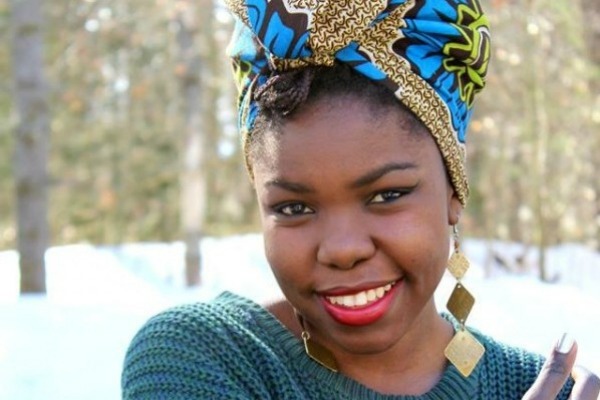
Okwiri Oduor is an upcoming Kenyan author who made waves in the literature world after winning the 2014 Caine Prize for African Writing for her short story titled ‘My Father’S Head’. The story explores the narrator’s difficulty in dealing with the loss of her father and looks at the themes of memory, loss and loneliness. The narrator works in a home for the elderly and comes into contact with a priest, giving her the courage to recall her buried memories of her father. “I just felt like writing, putting my thoughts down in a story,” Oduor says about writing ‘My Father’s Head’. The former law student says she did not mean for it to go anywhere. Previous winners of the Caine Prize include Nigeria’s Tope Folarin in 2013 and Zimbabwe’s NoViolet Bulawayo in 2011. Her novella, ‘The Dream Chasers’ was highly commended in the Commonwealth Book Prize in 2012. She was a 2014 MacDowell Colony fellow and is working on her debut novel.
 Uzodinma Iweala
Uzodinma Iweala
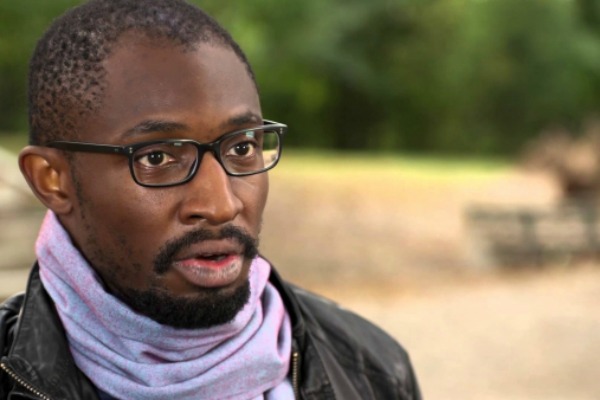
Uzodinma Iweala is a Nigerian medical doctor and author of the popular 2005 novel ‘Beasts of No Nation’ which was recently adapted into a film starring Idris Elba and breakout Ghanaian star Abraham Attah. The film was directed by Cary Joji Fukunaga. The novel tells the story of young boy, Agu, who is forced to join a group of soldiers fighting a war in an unnamed West African country. The book is hailed for its confrontational and immersive first-person narrative as well as for its depiction of the complexities experienced by child soldiers. The novel started out as a thesis for Uzodinma’s undergraduate English and American Literature and Language studies at Harvard. He was working under the tutelage of Caribbean novelist Jamaica Kincaid. He won the Hoopes Prize and the Dorothy Hicks Lee Prize for most outstanding thesis concerning African or African American literature among other awards. He also scooped the New York Public Library Young Lions Fiction Award in 2006 and was named as one of Granta Magazine’s top 20 best young American novelists. “If you’re going to take a certain subject matter, you really have to do your research and understand what’s going on,” Iweala says on storytelling. “This is not just, “oh let me sit down and make stuff up”,” he reiterates. In 2011, he graduated from Columbia University’s College of Physicians and Surgeons and is currently a fellow at the Radcliffe Institute for Advanced Study at Harvard University.
 Noviolet Bulawayo
Noviolet Bulawayo

Elizabeth Tshele, better known as NoViolet Bulawayo, is a Zimbabwean-born author. Born in Bulawayo, she is best known for her award-winning 2013 novel ‘We Need New Names.’ The book is based on a coming-of-age story about a young girl named Darling and her group of friends in Zimbabwe. The story follows the adventures that Darling and her friends embark on, whilst experiencing the realities of Zimbabwe. The book was shortlisted for the 2013 Man Booker Prize and the Guardian First Book Award, and, among others, was selected for inclusion on the New York Times Notable Books of 2013 list. Tshele was the first black African woman and the first Zimbabwean to be shortlisted for the Man Booker Prize. She also won the Etisalat Prize for Literature and the Hemingway Foundation/PEN Award among other accolades. “I was speaking for the need for us as a people to sort of re-imagine, rethink ourselves, rethink our way, think about where we were going,” Tshele says about the title of her book. “We needed new ways of seeing things, new ways of doing things, new leadership. It was basically a call for renewal.” NoViolet earned her MFA at Cornell University where she was a recipient of the Truman Capote Fellowship. She was a Stegner Fellow at Stanford University, where she now teaches as a Jones Lecturer in Fiction.
 Dinaw Mengestu
Dinaw Mengestu
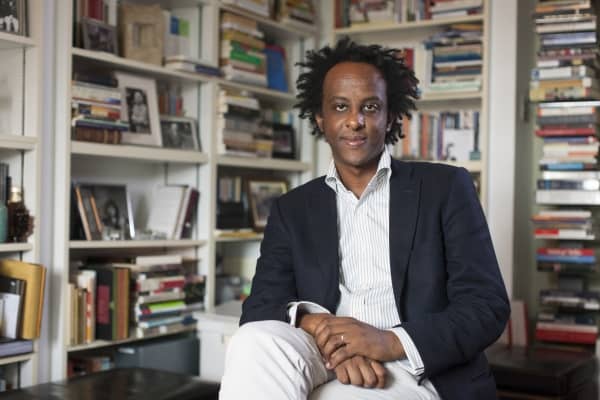
Dinaw Mengestu is an Ethiopian author who is known for his novels ‘Children of the Revolution’ (2007), ‘How To Read The Air’ (2010), ‘The Beautiful Things That Heaven Bears’ (2007) and his recent 2014 novel ‘All Our Names’. He also wrote a notable article on the war in Darfur for Rolling Stone and on the conflict in northern Uganda for Jane Magazine. The recurring theme in his novels is one of individuals immigrating to the USA to fashion new lives. ‘All Our Names’ is one such story which is based on two narrators who tell their story about leaving their homelands to start a new life in another part of the world. The characters, like so many young Africans, are intoxicated by the possibilities new beginnings and self-invention. ‘I told my parents I was going to be a doctor and then a lawyer, but I never believed it and never tried,’ Mengestu says about his journey on becoming a writer. ‘Once I began college, I was committed to writing, which I think is different from saying I wanted to become a writer. I knew I would always write; I just wasn’t always sure how I would go about doing so’. Mengestu was born in Addis Ababa, Ethiopia in 1978 and immigrated to the USA with his family when he was a child. The family settled in the state of Illinois. He received his B.A. in English from Georgetown University and graduated from Columbia University’s M.F.A. program in fiction. He is the recipient of a 5 Under 35 award from the National Book Foundation and a 20 Under 40 award from The New Yorker. His journalism and fiction have appeared in such publications as Harper’s Magazine and The Wall Street Journal. He is a recipient of a 2012 MacArthur Foundation genius grant.
 Taiye Selasi
Taiye Selasi
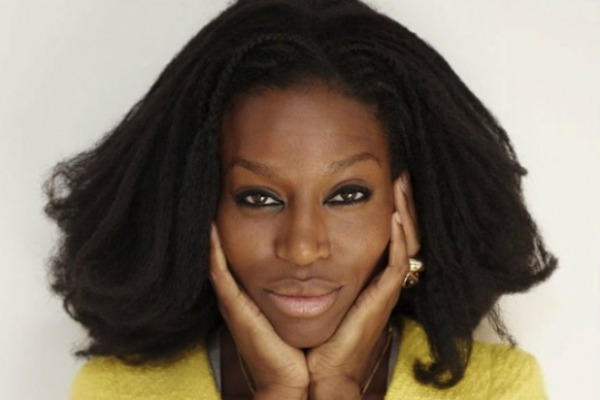
Taiye Selasi is a Nigerian/Ghanaian author who was born in London and raised in Massachusetts, USA. She is best known for her debut novel titled ‘Ghana Must Go’, which was named the New York Times bestseller and was selected as one of the 10 Best Books of 2013 by The Wall Street Journal and The Economist. The novel tells the story of a splintered family reconciling after being devastated by abandonment and death. The book was named after the Nigerian phrase directed at incoming Ghanaian refugees during political unrest in the 1980s. She is also known for her 2005 essay titled ‘What is an Afropolitan?’ where she discusses the rise of internationally mobile, young people of African descent, making their mark on the world and defying downtrodden stereotypes, as well as her short fiction titled ‘The Sex Lives of African Girls’ which was published in ‘The Best American Short Stories’ in 2012. “The big ideas always come in flashes. I don’t really craft stories that much,” Selasi says about her writing inspirations. “I genuinely don’t know where these people come from and I’ve often wondered if writing is just a socially acceptable form of madness.” Selasi graduated summa cum laude with a BA in American Studies from Yale University and earned an M.Phil. in International Relations from Oxford University. In 2006 Taiye joined the WGAE Screenwriting Lab at Columbia University, studying under Oscar nominee Zach Sklar (JFK). She worked in television production before moving on to full-time in fiction, screenwriting, and photography.
 Shadreck Chikoti
Shadreck Chikoti

Shadreck Chikoti is a Malawian author who is best known for his futuristic novel ‘Azotus the Kingdom.’ The novel, which is a story about how Africa would be 500 years from now, won the 2013 Peer Gynt Literary Award at an event that was held in Lilongwe, Malawi. It took Chikoti 6 years to complete the novel. “The manuscript was written in a space of 3 months while in a residency in Denmark,” Chikoti says about the writing journey for the book. “I wrote the first half of the book in Viborg and the other in Copenhagen where my co-director Trine Andersen provided the environment.” Chikoti is expected to read the book this year at the University of Michigan. Chikoti has a diploma in Journalism from the Polytechnic College of Malawi, and a certificate in Radio Production from Trans World Radio Communication Center. He also holds a Bachelor of Arts Degree in Theology and Communication from African Bible College. He is vice president of the Malawi Writers Union and founded Pan African Publishers Limited with Trine Andersen with the aim publishing works from African authors.
 Nakhane Toure
Nakhane Toure

Nakhane Toure is a musician and author who was raised in Port Elizabeth in the Eastern Cape Province and is now based in Johannesburg, South Africa. His debut novel titled ‘Piggy Boy’s Blues’ was released in September last year through Jacana Media. He spent about 6 years on the project, which was initially named ‘To Whom Shall We Go?’ until he decided to change it to the current title. The overarching theme of the book is its exploration of the spiritual lives of black people. It reads more like fragments of a recurring dream rather than a linear novel as it explores the identities of the story’s three main characters. In writing the book, which led him on a journey from Johannesburg back to his hometown in the Eastern Cape, Toure admits to being inspired by the Bible; the episodic structure of it and how information is given in a single chapter before the story moves on. “My mother was and still is a very important influence on almost everything I do creatively,” Toure says on his inspiration for writing. “She remains an incredible story-teller.” Toure studied literature at the University of the Witwatersrand and released his award-winning debut album ‘Brave Confusion’ in 2013.
 Tendai Huchu
Tendai Huchu
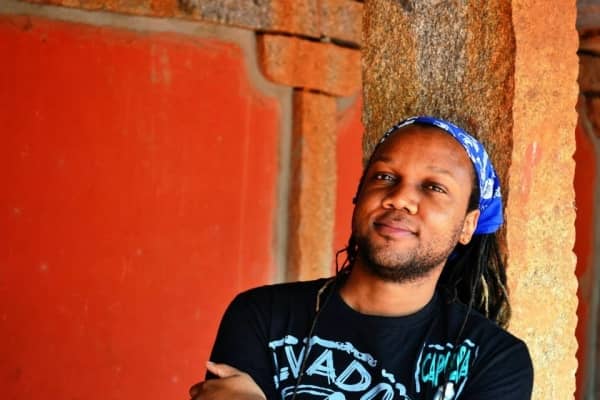
Tendai Huchu is an author who was born and raised in Bindura, Zimbabwe. He is popularly known for his debut novel titled ‘The Hairdresser of Harare’ which was released in 2010 to critical acclaim. The book has been described by the New York Times as a fresh and moving account of contemporary Zimbabwe. The story’s narrator Vimbai is a struggling single mother who is estranged from her family. She is also the best hairdresser in Harare and meets a charismatic fellow named Dumisani when he arrives at her salon. The secrets that Dumisani brings with him ultimately transform Vimbai and her understanding of the world around her. The book has been translated into German, French, Italian and Spanish. His multi-genre short fiction and nonfiction have appeared in various publications including The Manchester Review, Ellery Queen’s Mystery Magazine and Gutter. His new novel is titled ‘The Maestro, The Magistrate & The Mathematician’. Huchu studied Podiatry as his undergraduate studies, and is currently a creative writing PhD student at Manchester University. “I had no formal literary training when I started,” says Huchu. “I never attended any workshops or anything like that. I just winged it, and as they say, I’m still winging it!” He notes that his inspiration to write could have come from his primary school teacher who would thrust a good book in his hands, or from reading work from 19th century Russian novelists such as Dostoevsky, Tolstoy and Turgenev in his early twenties.
 Chigozie Obiama
Chigozie Obiama
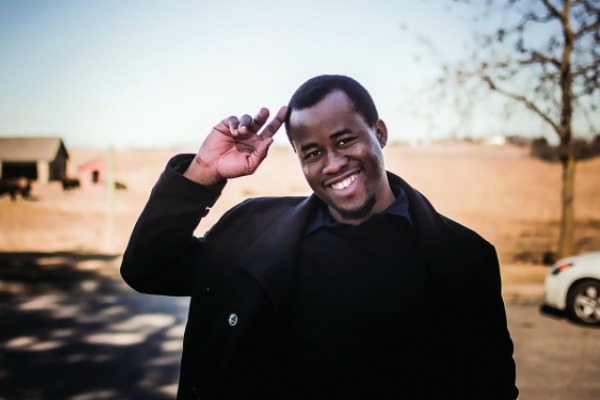
Chigozie Obioma is a Nigerian-born author who is popularly known for his debut novel titled ‘The Fisherman’. The book is a coming-of-age novel that follows four brothers in a small Nigerian village who are given a violent prophecy which shakes their family to the core. “That mythic dimension is what I’m most interested in — the way he blends the supernatural world seamlessly with the human reality,” Obioma says about his inspiration for the novel. Obioma adds that inspiration for the book came from a telephonic conversation back in 2009 with his father where he was told about the increasing closeness of his elder brothers who were bitter rivals for a period during their adolescent years. He then imagined what life would have been like if they had continued on the path of resentment, and it inspired a story about a family whose unity is destroyed by an external force. The book was shortlisted for the 2015 Man Booker Prize. Obioma already has The Inaugural FT/Oppenheimer Emerging Voices for Fiction award and the 2016 NAACP Image Award for Outstanding Debut Literary Work under his belt. He has made onto various lists including the 2015 the Financial Times and the UK Observer for Best Debut Novel of the Year. Obioma was born in 1986 and raised in Akure, south-west Nigeria. After studying economics in Nigeria, he pursued Literature at Cyprus International University. He graduated with a masters degree in creative writing from the University of Michigan, and is now a professor in Literature and Creative Writing at the University of Nebraska- Lincoln.

 Lauren Beukes
Lauren Beukes Okwiri Oduor
Okwiri Oduor Uzodinma Iweala
Uzodinma Iweala Noviolet Bulawayo
Noviolet Bulawayo Dinaw Mengestu
Dinaw Mengestu Taiye Selasi
Taiye Selasi Shadreck Chikoti
Shadreck Chikoti Nakhane Toure
Nakhane Toure Tendai Huchu
Tendai Huchu Chigozie Obiama
Chigozie Obiama